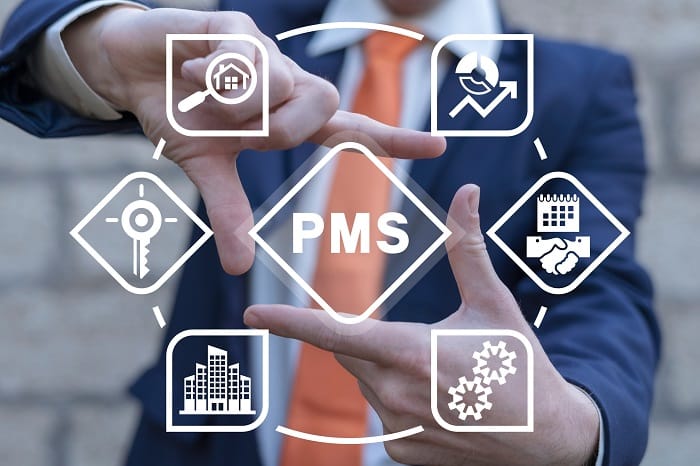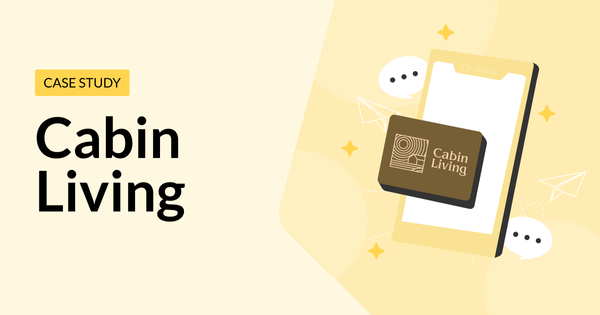Benefits of a Property Management System Every Short-Term Rental Owner Needs to Know

If you’re reading this article, then you are either a) in the market for a property management system (PMS) or b) looking for some reassurance as to whether or not you actually need one.
In today’s short-term rental market, good property management software is pretty much a must-have for all property owners. Considering it’s the go-to tool of real estate professionals everywhere, there’s a reason why you’d hear about it throughout the real estate industry. Think of it like trying to manage a busy coffee shop without a good point-of-sale system—it just wouldn’t work smoothly.
With more and more listings to juggle across platforms like Airbnb and Booking.com, plus the pressure to keep guests happy, a PMS steps in to make everything run like a well-oiled machine.
In this article, we’ll provide a list of all the benefits—and a top contender for your consideration—that come with a good property management system, as well as some of the challenges that come with it.
What are the Benefits of Using a Property Management System?
Well, there are plenty of benefits, but there are 7 standouts that we can mention right off the bat.
1. A Centralized Platform
First off, it’s all about keeping things organized. Property management software pulls all your management tasks—reservations, pricing, guest messages, and even maintenance requests—into one place. It lets you manage properties from one location, which leaves less room for property managers to run around.
Imagine trying to keep track of orders at a restaurant without a central system; that’s what property management would be like without a PMS. Plus, these systems sync everything across all the platforms you use, so you don’t have to worry about double bookings or outdated availability.
2. Better Guest Experience
Then there’s the guest experience. A PMS can store details about your guests, like their preferences or past stays, so you can make them feel right at home and level up that “customer satisfaction”. It’s like remembering a regular customer’s coffee order before they even ask.
Automated messages for check-ins, confirmations, and follow-ups keep things smooth and professional, so guests leave with a great impression and you don’t ever break a sweat over your property management.
3. Optimized Pricing and Revenue Management
When it comes to pricing, a PMS is your secret weapon. With dynamic pricing tools that adjust rates based on what’s happening in the market—think of it like surge pricing for ride-shares—you can make sure you’re charging the right amount at the right time.
And with all the reporting and analytics features, you’ll have a clear view of how well your properties are doing, just like how a retail store might track sales and inventory. However, it’s important to note that property management software often doesn’t completely replace accounting software, so you might need some supplementary support.

4. Automation and Operational Efficiency
Automation is another big win. Just like self-checkout lines in grocery stores cut down on wait times and let staff focus on other tasks, property management software automates routine jobs like syncing calendars, document management, sending messages, and scheduling cleanings. This frees you up to focus on growing your business or finding ways to make guests’ stays even better.
They can even help process online payments, take the fuss out of maintenance scheduling, and basically take over the entire process by automating tasks. As far as software solutions go, it really is a valuable tool that goes the extra mile in enhancing your property management experience.
5. Compliance and Security
On the compliance and security front, a PMS has your back. It helps you stay on top of local regulations, tax requirements, and even data privacy, which is super important as rules around short-term rentals get stricter. And with integrated secure payment processing, it’s like having a solid cash register that handles transactions smoothly and safely.
6. Property Management Systems Ensuring Scalability
Scalability is another reason property management software shines. As you add more properties to your portfolio, it helps you or a property manager manage everything without increasing your workload proportionally. It’s like moving from a food truck to a full-on restaurant but with systems in place that keep things running as smoothly as they did when you were smaller.
Not to mention that almost every property management system allows you to optimize listings across platforms, ensuring maximum visibility and booking potential.
7. Marketing Through Property Management Software
Lastly, a good PMS boosts your marketing. Some systems offer tools to create targeted campaigns, much like a local bakery might send out coupons to loyal customers. And by integrating with multiple online travel agencies (OTAs) and direct booking sites, your properties get more exposure, which means more bookings and higher occupancy rates.
In a nutshell, property management software is the backbone of any short-term rental operation, making it easier to manage multiple properties, keep guests happy, and grow your business—all while staying efficient and compliant.

What are the Disadvantages of Using a Property Management System?
When thinking about property management system, it’s important to weigh the downsides along with all the benefits. Like with anything, there are some potential drawbacks that might make you pause before diving in.
Cost
First up, let’s talk about cost. Setting up a property management system isn’t exactly cheap. It’s like investing in a fancy espresso machine for your café—you’re not just paying for the machine itself, but also for the ongoing maintenance tasks, supplies, and occasional repairs.
A PMS comes with an initial price tag, and then there are the regular fees to keep it running smoothly. If you’re managing just a few properties, these costs might feel like a lot to swallow, especially if you’re trying to keep overhead low.
Complexity
Then there’s the complexity of it all. Imagine giving your staff a state-of-the-art cash register with all the bells and whistles but not providing any training on how to use it. They’d be lost, right? The same goes for a PMS.
These systems can be pretty intricate, and there’s definitely a learning curve involved. You’ll need to spend time (and probably money) training yourself or your team to use the system effectively. And until everyone’s up to speed, there might be some frustrating moments as you figure things out.
Dependence on Tech
Finally, we can’t ignore the dependency on technology. Relying on a PMS is kind of like depending on GPS for all your road trips—it’s super helpful when it works, but when it doesn’t, you might find yourself in a bit of a pickle.
If the system goes down, whether because of a server issue, a data breach, or just a spotty internet connection, it could seriously disrupt your operations. Your direct booking website could be one workaround, but it might not mitigate enough of the headache.
Where everyone’s data is a target, there’s always that nagging worry about security. If you’re not careful, a data breach could lead to more than just a headache—it could impact your guests’ trust in your business.
It’s important to consider these potential challenges before jumping in. Just like any big business decision, you’ll want to weigh the pros and cons to see if it’s the right move for you.
What’s the Best Property Management System?
Trick question. There’s a PMS out there uniquely suited to every owner and property manager’s needs, but helping you put your property management on autopilot is kind of our whole thing.
Managing properties with iGMS is less of a grind and a much more enjoyable experience. Best of all, you have flexibility – you can use the software whether you work with a property manager or manage everything as the property owner yourself.
Why choose iGMS?
We provide a comprehensive suite of tools designed to elevate every aspect of your hosting experience, like:
- Centralize your operations with the Channel Manager, effortlessly managing multiple listings across platforms like Airbnb, VRBO, and Booking.com.
- Efficiently coordinate maintenance requests, cleaning tasks, and schedules with Team Management, ensuring your property is always guest-ready.

Final Thoughts
While a PMS can seriously boost your efficiency and guest satisfaction, it does come with some potential downsides like cost, complexity, and tech reliance.
For many, the benefits—like better pricing and smoother operations—outweigh the disadvantages, but it’s important to make the final decision based on your needs and budget. If you do decide to go for it, keep us in mind.
About the Author
Daniëlle Kruger is a writer and Content Manager at iGMS. She is an avid reader and researcher of all things travel, always trying to keep her finger on the pulse of the latest trends and innovations. A self-proclaimed nerd, Dani enjoys reading, roller skating, and playing video games.






